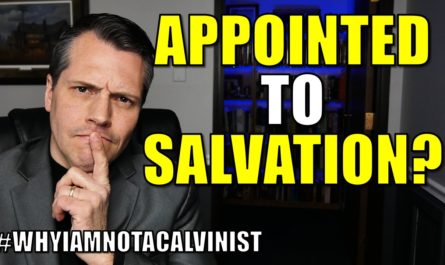For Father’s Day this year, my wife gave me one of the best presents I have ever received. A while back I had seen a picture of a hot chocolate mug (I can’t stand coffee), and she had a friend make one for me. I love it, not only because she took the time to have it made for me, but also because of the simple but deep theological truth it conveys in a somewhat sarcastic statement: “I can do all things through a verse taken out of context.”
Yes, it’s a rather loose translation of the much-loved Philippians 4:13, in which Paul says, “I can do all things through Christ who strengthens me.”
This phrase of Paul has undergone quite a transformation since he first inked it on an ancient parchment. For Paul, it was an explanation of how he persevered through times of great trial. Now it is a promise that I can do anything I want to do. I can land my dream job, score a touchdown, or become rich…as long as I learn how to deftly wave my magic Jesus wand.
But what did Paul actually mean when he wrote this famous phrase? Well, that really is not hard to figure out, if we engage in a simple but forgotten task—read the context.
Paul is wrapping up his letter to the church in Philippi by thanking them for caring for his needs whenever they had the opportunity. “Not that I speak in regard to need, for I have learned in whatever state I am, to be content. I know how to be abased, and I know how to abound. Everywhere and in all things I have learned both to be full and to be hungry, both to abound and suffer need. I can do all things through Christ who strengthens me” (Philippians 4:11-13).
Paul was not promising that followers of Jesus will always get good grades and win championships. He was stating what he found to be true in his life—in his ministry, he faced seemingly insurmountable setbacks. But he could persevere because his strength did not come from financial security or ego-enhancing success. He was serving Christ, who would ensure that he had what he needed to accomplish his task.
I recently picked up my son from a Christian summer camp, and because we arrived early, we were able to observe part of the final chapel service. They sang a song I had not heard in years. It went like this:
Every promise in the book is mine,
Every scripture, every verse, every line.
All are blessings of His love divine,
Every promise in the book is mine.
This was a theologically conservative camp, but it sounded like something you would hear from Joel Osteen or Benny Hinn. Every promise in the Bible is not mine, especially because I am not a Jew. How do I know if a promise is for me? I read the context. It’s not rocket science.
I have placed my eisegesis-mocking mug in a prominent place in my office where I can see it every day. It serves as a constant reminder to me that I do not have the authority to twist the Scriptures into what I want them to mean. It is my task to do the hard work of study to find out what they really mean, then determine if and how they apply into my life and the lives of my people.



